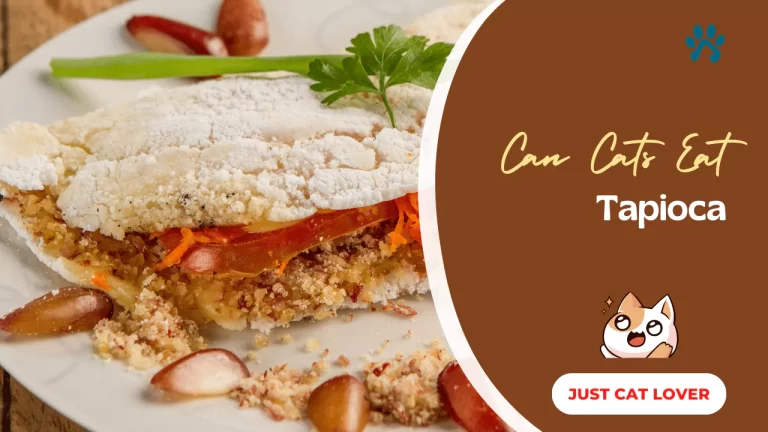Yes, cats can eat tapioca, but it is not very nutritious for them. Tapioca is a starch from cassava, a plant that is not toxic to cats.
However, tapioca does not provide any significant protein, fat, or fiber for cats, which are essential for their health.
Tapioca is also high in carbohydrates and sugar, which can cause obesity and diabetes in cats if consumed too much. Therefore, tapioca should not be a regular part of a cat’s diet, but rather an occasional treat.
Is Tapioca Safe for Cats?
Tapioca itself is usually made from the starchy root of the cassava plant and contains mostly carbohydrates with little protein, fat or other nutrients. While small amounts may not be toxic, tapioca offers no health benefits for cats and may cause:
- Digestive upset, vomiting or diarrhea due to difficulty digesting the pure starch.
- Potential choking hazard from dry tapioca pearls.
- Weight gain if fed in large amounts, as the calories from carbohydrates and starch can lead to obesity.
So while not necessarily toxic, tapioca does not provide complete and balanced nutrition for cats who require sufficient protein from meat sources and minimal carbohydrates.
Tapioca Starch in Cat Foods
Some commercial cat foods do contain tapioca starch as a thickening agent or binder. This is typically only present in small amounts and is not a health risk.
However, low-quality cat foods may use tapioca starch as a cheap filler instead of high-quality protein sources. Excess starch from tapioca can contribute to obesity and other health issues in cats if the food is starch-heavy and protein-deficient.
Check the ingredient list and nutritional adequacy statement when choosing a cat food. A healthy cat food will have meat or fish as the first ingredient and minimal starchy fillers like tapioca.
What to Do If Your Cat Eats Tapioca?
If your cat accidentally consumes a small amount of pure tapioca pearls or flour, monitor them closely for any signs of an adverse reaction, including:
- Vomiting or diarrhea
- Decreased appetite
- Lethargy
- Choking or coughing
Prevent access to prevent overconsumption. Call your veterinarian if symptoms persist more than 24 hours or immediate veterinary care is needed for choking.
Overall, tapioca provides no health benefits and may pose risks of digestive upset, obesity or choking hazard for cats. Stick to cat foods with proper protein levels and minimal starchy fillers for optimal feline health. Avoid feeding cats pure forms of tapioca.







